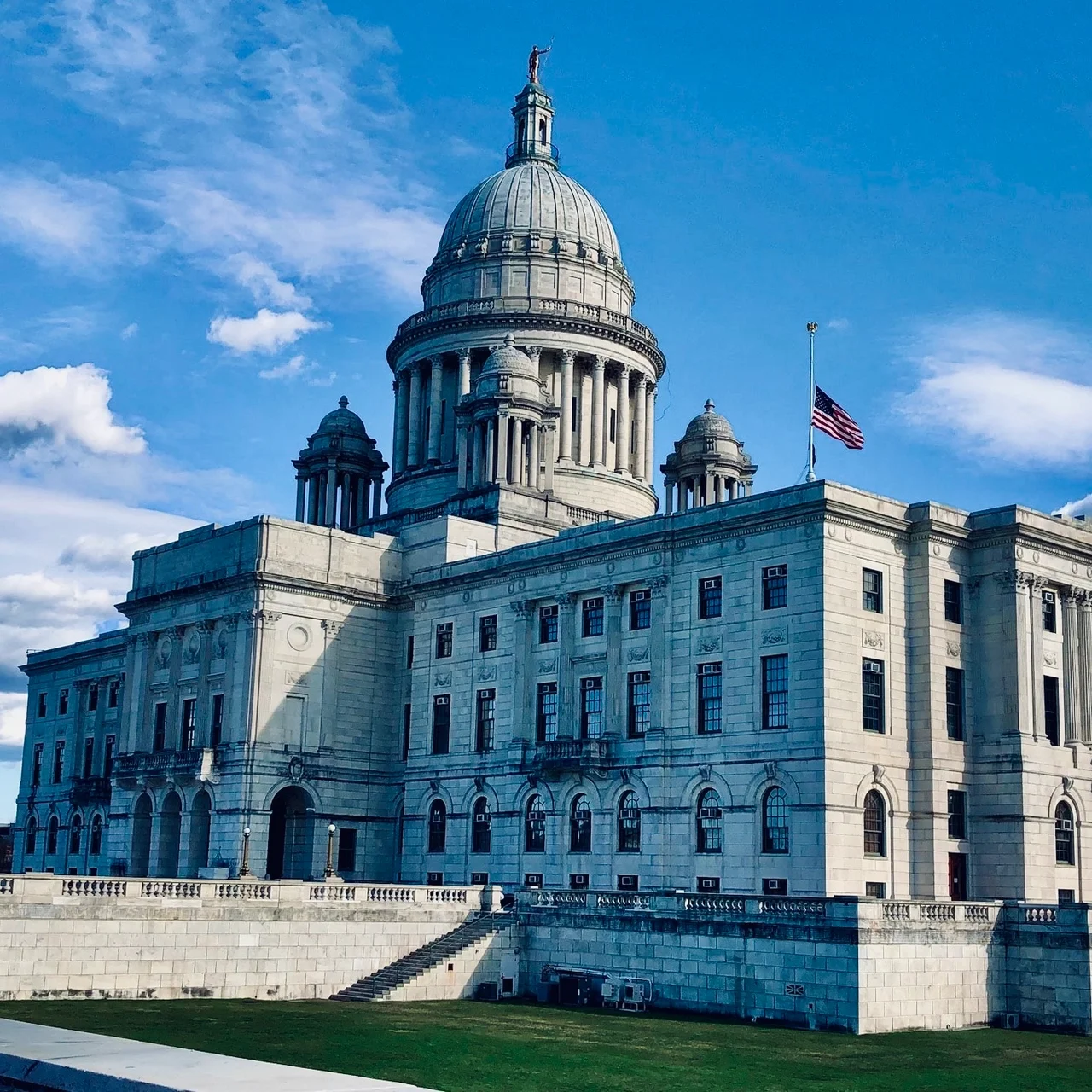CLIMATE CHANGE AND ENVIRONMENTAL JUSTICE PRESS
The U.S. EPA’s revised definition of “waters of the United States” under the Clean Water Act would reduce permitting needs for waste facilities, but raises new questions, experts say.
The SELC started the official rematch by filing a federal lawsuit in October, joined by Lawyers for Good Government, the Conservation Law Foundation, and the Lawyers Committee for Rhode Island, to reverse what they call the administration’s “illegal termination” of the program. The government has 60 days to respond to the filing (Dec. 5 at the latest).
Lawmakers join growing backlash as legal challenges mount to restore the $7 billion program designed to deliver solar access and bill relief for low-income households.
Massachusetts was going to receive $156 million to help install solar with low-income households through the Solar for All project before the Environmental Protection Agency canceled the program in August.
The funds would have brought solar to an estimated 29,000 households in the Bay State and created 3,000 jobs.
The plaintiffs are represented by the Southern Environmental Law Center, the Rhode Island Center for Justice and Lawyers for Good Government.
The Solar for All program was projected by the Biden administration to help 900,000 households get access to solar power. It would save Americans, the Biden administration said, $350 million a year in energy costs.
The termination of the $7 billion Solar for All program — once hailed as a cornerstone for expanding solar access to low-income households — is officially being challenged in court.
The Southern Environmental Law Center (SELC), along with Lawyers for Good Government, the Conservation Law Foundation, and the Lawyers Committee for Rhode Island, filed a federal lawsuit today in the U.S. District Court for the District of Rhode Island to reverse what they call the Trump administration’s “illegal termination” of the program
The lawsuit, filed in U.S. District Court in Rhode Island, challenges the EPA’s decision to terminate all funding for the Solar for All program. Local attorneys representing the Lawyers’ Committee for Rhode Island, Southern Environmental Law Center, Lawyers for Good Government, and the Conservation Law Foundation filed the suit.
Conservation groups say the Environmental Protection Agency is harming nearly 1 million households that were promised cheaper energy.
In a 47-page complaint, filed in federal court in Rhode Island, the groups accuse the Environmental Protection Agency and its head Lee Zeldin of “hastily and unlawfully” eliminating the Solar for All program this summer — a move they say only Congress, not the executive, has the right to make.
The lawsuit filed Monday in federal court in Rhode Island challenges the Trump administration’s decision to end the solar energy initiative, which received congressionally mandated funding under the Biden-era Inflation Reduction Act.
The lawsuit targets EPA’s cancellation of funds intended to bring clean energy to low-income communities.
CLF, alongside the Southern Environmental Law Center, Lawyers for Good Government and the Lawyers' Committee for Rhode Island, filed the complaint on behalf of the plaintiffs.
Since the start of the year, environmental law groups—including Lawyers for Good Government, the Environmental Defense Fund, Earthjustice, the Natural Resources Defense Council, and others—have worked overtime to counter Trump’s rollbacks. These groups, largely philanthropically funded and traditionally focused on separate regions or issues, are now more coordinated than ever, says Kym Meyer, litigation director of the Southern Environmental Law Center.
Several signers have sought support from attorneys with the Government Accountability Project and Lawyers for Good Government, two whistleblower protection organizations.
“This is intimidation and patently violates the whistleblower laws,” Government Accountability Project Senior Counsel David Seide said of the investigation. “(These workers) filed a petition and were put on administrative leave immediately. That’s retaliation. Now they’re being investigated, and that’s retaliation too.”
Environmental Protection Agency Administrator Lee Zeldin argued that July’s passage of President Donald Trump’s One Big Beautiful Bill Act means the agency lacks both the authority and the money “to keep this boondoggle alive.”
EPA is “basically trying to make it sound like you’ll never get your funding unless you agree to their terms, and that’s just not correct,” Jillian Blanchard, vice president of climate and environmental justice at Lawyers for Good Government, told Jean about EPA’s termination notices. “People are owed what they’re owed.”
Jillian Blanchard, an attorney with the advocacy group Lawyers for Good Government, said language in the One Big Beautiful Bill Act is very clear — it does not touch obligated funds. The Trump administration knows it would probably lose in court, so they make these shocking announcements just to try to scare the grant recipients into folding, she said.
“This is legally completely unfounded what they’re doing,” Blanchard said. “It’s really, really important for states, no matter their political leanings, to protect the rule of law …This should not be a political analysis by the state. This should be pure economics.”
The Environmental Protection Agency announced it’s cancelling $93 million already allocated for solar energy projects for low-income Arkansas and Mississippi communities.
Attorneys with public interest law group Lawyers for Good Government is looking to work with Greenhouse Gas Reduction Fund awardees to sue the Trump Administration over the move.
The Trump Administration says it will end a $7 billion program to help low-income households and communities get access to affordable solar energy. The move is part of President Trump’s effort to reverse former President Biden’s climate agenda and boost fossil fuels instead.
“We and many others are prepared to take them to court,” says Jillian Blanchard, vice president of climate change and environment justice at Lawyers for Good Government, which is working with grantees. Blanchard says the new law “rescinded only a much smaller portion of money — of unobligated funds.”
The hour-long hearing focused on the plaintiffs’ motion for preliminary injunction and the EPA’s motion to dismiss.
The plaintiffs argued the grant terminations are unlawful because Congress had already appropriated the funding, while the EPA argued that the “One Big Beautiful Bill” signed into law on July 4 codified the cuts, according to Katherine Christopher, supervising attorney for Climate Change and Environmental Justice Lawyers for Good Government, one of the groups representing the plaintiffs.
The $7B program builds low-cost solar projects to slash bills for nearly 1 million families and help bolster the grid. The Trump administration is trying to end it.
Rumors that the EPA plans to terminate Solar for All have been swirling for months, said Jillian Blanchard, vice president of climate change and environmental justice at Lawyers for Good Government, a nonprofit coalition of attorneys, law students, and activists that’s challenging other EPA funding cuts.
A U.S. District Court judge in Washington hears arguments over the cancellation of funding for flood mitigation and other projects. Among them are those that would have benefited Southwest Virginia.
Ben Grillot, senior attorney with the Southern Environmental Law Center, alongside attorneys from Earthjustice, the Public Rights Project and Lawyers for Good Government, argued that Trump’s orders violated the Constitution’s separation of powers by having the executive branch void congressionally mandated spending.
Attorneys for environmental infrastructure grant recipients told a D.C. federal judge Tuesday that the U.S. Environmental Protection Agency's own emails show that a proposed class action challenging the blanket termination of a climate justice and resilience grant program.
Several non-profit legal advocacy groups – EarthJustice, Southern Environmental Law Center, Public Rights Project and Lawyers for Good Government – filed the proposed class-action lawsuit alleging that the wholesale termination violated the separation of powers and is therefore unconstitutional. They also argue that the Trump administration’s decision was both “arbitrary and capricious” – in other words, made without proper reasoning or consideration of the consequences, in violation of the Administrative Procedure Act.
Nonprofits and state agencies involved in the solar initiative say they’ve been warned grants could be terminated this week.
Jillian Blanchard, vice president of climate change and environment justice at Lawyers for Good Government, which has worked closely with grantees, said outreach to EPA was ongoing. And some grant recipients said they were still hopeful that the agency would let the project continue.
"Programs who just want money to make sure they have clean air, clean water,” said Jullian Blanchard.
Several organizations, including "Lawyers for Good Government" have joined forces to file a lawsuit against the Environmental Protection Agency, hoping to restore funding.
"These projects are about protecting American people from things that they shouldn't have to pay for themselves,” Blanchard said.
City officials on Wednesday announced Sacramento had joined the lawsuit filed by Earthjustice, Southern Environmental Law Center, Public Rights Project and Lawyers for Good Government.
Lawyers for Good Government filed a class action joined by Health Resources in Action and Springfield officials. It aims to get back $3 billion in federal funding for 350 grant recipients under the Environmental and Climate Justice Program.
Legacy Land Conservancy has filed a formal appeal with the U.S. Department of Agriculture’s National Appeals Division (NAD) a month after the federal government’s decision to rescind a $24.6 million grant aimed at protecting 4,000 acres of southeast Michigan farmland and forest.
Groups such as Air Alliance Houston, Earthjustice, Southern Environmental Law Center, Public Rights Project, and Lawyers for Good Government filed the challenge on behalf of the Environmental and Climate Justice grant recipients, to seek the nationwide restoration of the program and to require the administration to reinstate awarded grant agreements.
“We are proud to stand alongside our partners and these plaintiffs to fight for the communities who have been unlawfully denied the resources Congress promised them. This is a blatant, illegal attempt to sidestep federal law and strip critical funding away from the communities who need it most,” said Jillian Blanchard, Vice President of the Climate Change and Environmental Justice Program at Lawyers for Good Government.





























